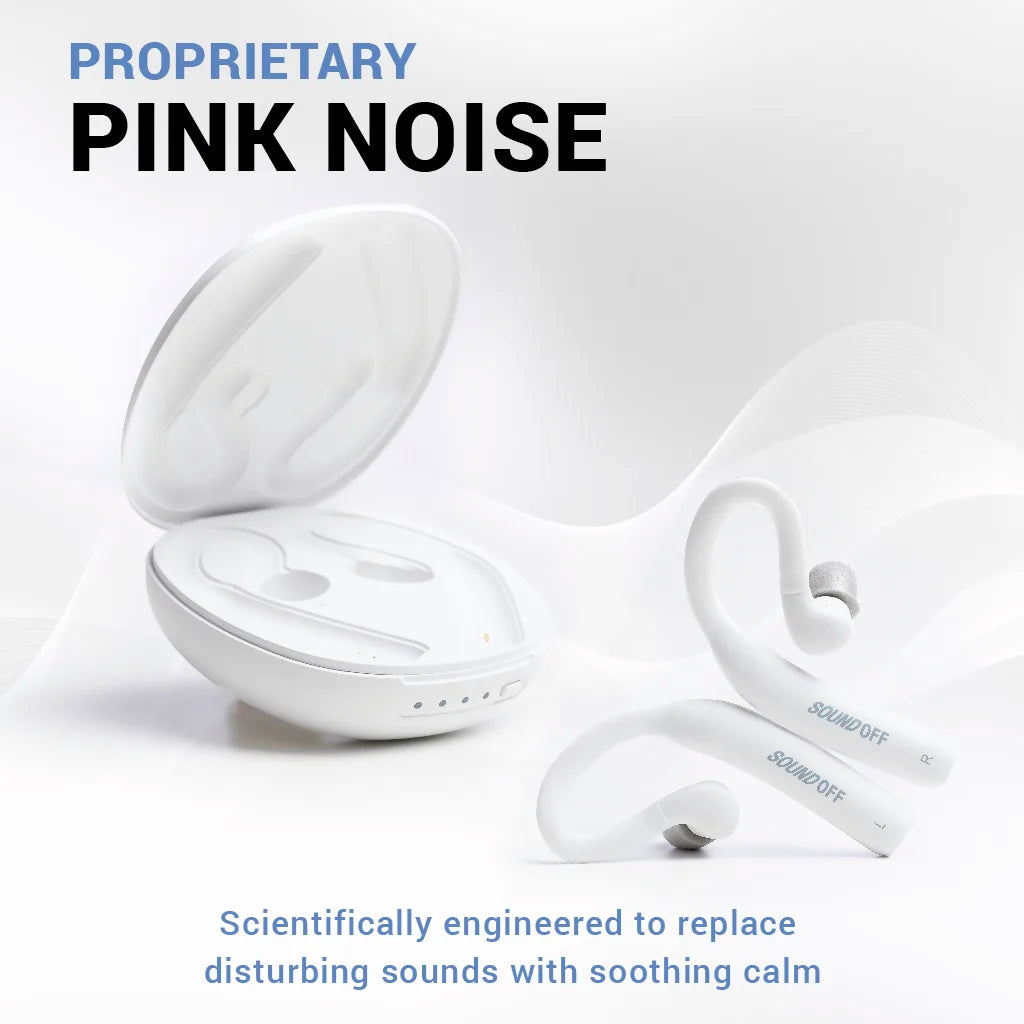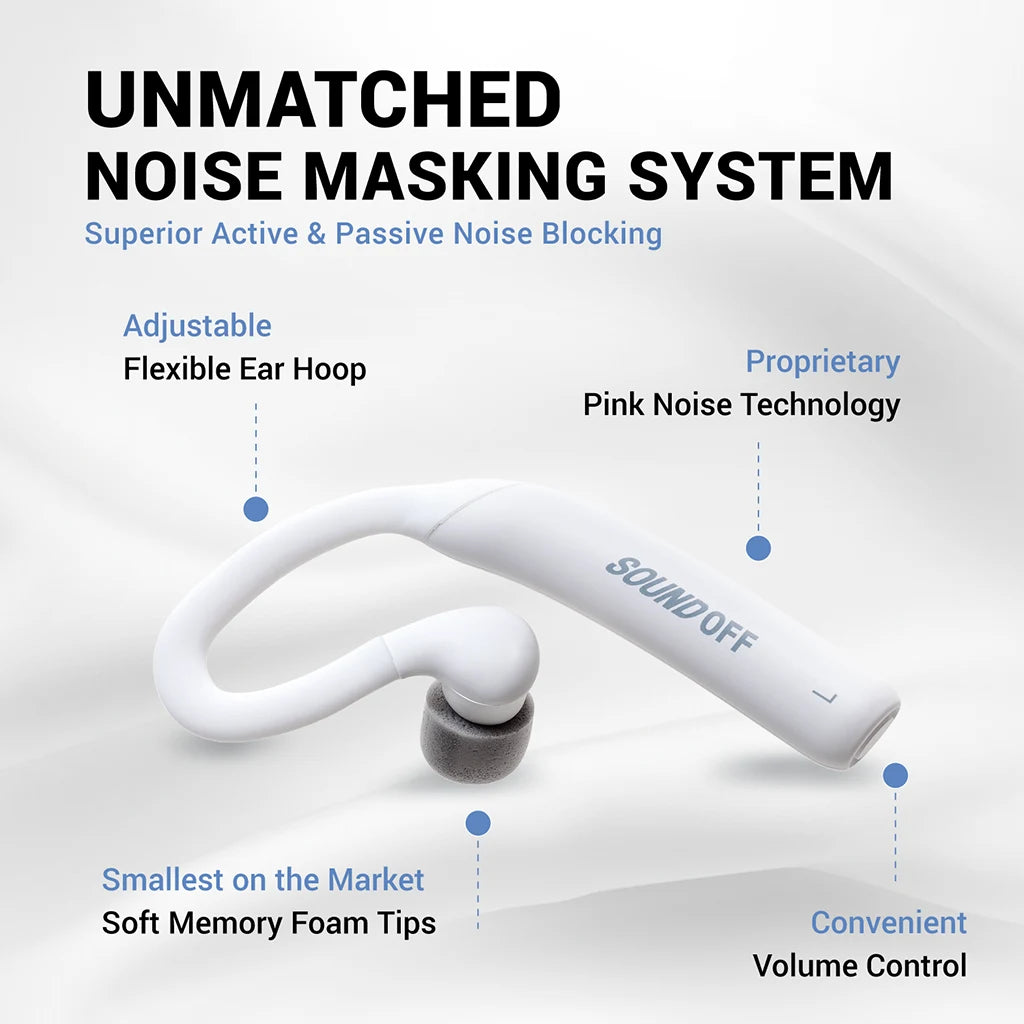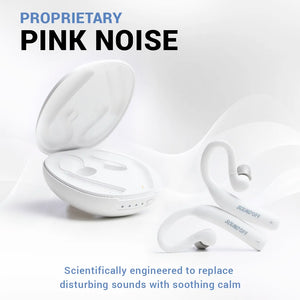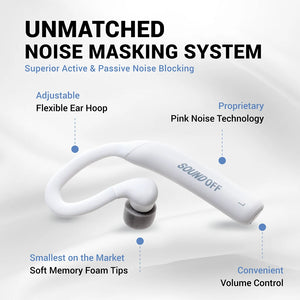
Barking Dogs & Your Sleep
Barking dogs are a major source of noise pollution day in and day out. In the US alone, the dog population is approximately 78 million—with a high percentage of dogs barking excessively. Barking dogs top-the-list of nuisance-noise because the human ear finds this sound particularly annoying–especially when it’s keeping us awake.
Hearing dog barking at night disrupts the human sleep cycle—preventing one from getting the deep REM sleep they need to achieve real rest. Before you find yourself “barking mad,” take steps to deal with barking dogs and your sleep!
Ouch! That's LOUD
No matter the breed; larger breeds—to toy breeds, dogs produce high-frequency barks ranging from 1000-2000 Hz at sound levels in the range of 80-90 dB, within 16 feet of the dog. Yikes! That’s a painful amount of noise and it can disrupt your sleep for hours. Not only does it startle you awake—or prevent you from falling asleep—it frustrates you and makes you angry. This also destroys your sleep.
Why do dogs Bark?
Whether you’re trying to fall asleep, read a book, or just relax, coping with this volume of racket is maddening. Managing it will depend largely on whether it’s your barking dog or someone else’s. Let’s start with why all this barking is happening in the first place…
WHY is your fur baby… or the neighborhood dog… trying to drive you out of your mind? That’s what it feels like—right? Most likely, they’re just responding to a perceived threat, or a physical or emotional pain point. If you can find any comfort in that when you’re sleep deprived, you’re doing better than most.
Silence, PLEASE!
You love your dog—you may even love the neighbor’s dog—but barking dogs and your sleep do NOT mix. The results of sleep loss can get ugly so let’s figure this out. Here are three key reasons barking dogs are keeping you awake:
Dogs bark for a number of reasons—sometimes it’s just because they want to be inside… with theirfamily.

Dogs are social creatures
Dogs see themselves as part of the family. Who makes their family sleep outside… in the elements? Eight hours outside, while their family is tucked up and cozy, can be a very long time for a dog to be left alone.
A bored or lonely dog is more likely to bark. If your neighbor is leaving their dog out all night—or alone for long periods during the day, don’t take it out on the dog. Yelling at the dog will solve nothing. Try leaving an anonymous (kindly worded) note for your neighbor instead. They may not be aware their pet is disturbing you.
Dogs are territorial
Dogs are protectors and don’t take kindly to other critters invading their space—such as roaming bands of feral cats, and food-robbing racoons. My neighbor used to work the night shift and every few weeks, while he was tending to other people’s business, a possum would cause a ruckus in his backyard… and eventually meet its demise. The barking and growling would go on forever!
It’s hard to say who was more worn out in the end—the possum, or sleepless me. But eventually, the possums abandoned both his yard and mine… a definite plus. Thank you, Kato.
In short, dogs are gonna do what dogs are gonna do. If your pet is keeping you and your neighbors up at night, you probably need to bring them indoors—so everyone can sleep better. Noise Free America recommends everyone practice the golden rule when it comes to barking dogs. If it’s your neighbor’s dog disturbing the peace? They have answers to help you sort that out too.
Dogs are highly sound-sensitive
A dog’s ears are approximately four times more sensitive to sound than ours. The muscles and ear canals of dogs allow them to hear sounds that are silent to us. What we hear at a distance of 20 feet from a sound source is heard by dogs at 80 feet away. These sounds sometimes hurt their ears.
Basically, they’re just doing their job.The upside is that barking dogs are going to sound the alarm when someone unfamiliar is prowling the neighborhood at 2:00 AM—or a fox is casing your chicken coop.
But of course, that doesn’t address your ongoing sleeping problem. We’re going to get to that soon. Before your lack of sleep—or your neighbor’s lack of sleep—disrupts neighborhood harmony.
These things cause excessive barking:
- Alarm: Any person, animal or thing that startles them or makes them fearful will cause excessive barking.
- Attention-Seeking: They may need to be let out, want food… or may just want affection.
- Bored or Lonely: They’re pack animals and become unhappy when left alone too long.
- Defense of Territory: When a person or another animal has entered what they consider their domain.
- Emergency: Calling for help when their human is injured.
- "Hello there": Sometimes barking is just a friendly greeting for a person or another animal.
- They want to be inside: Where you are.

Barking dogs trigger other dogs to bark. When they all join in, it can mean dozens of barking dogs disrupting your sleep.
Dogs and Sirens
Dogs tend to howl when they hear sirens, and like the barking, our ears find this unpleasant. Worse, once one dog starts vocalizing, the whole neighborhood joins in. If you’re living in a high-rise apartment, this can mean dozens of barking dogs disrupting your sleep.
But it’s not because the siren noise is causing them pain—and no, they’re not practicing for Sunday choir. Apparently, they’re trying to accomplish one of two things:
- One, they’re trying to warn of an abnormal sound which you might be able to fix.
- Two, they’re actually trying to chase the sound away.
It seems the dog receives a psychological reward for the latter—as the sound of the receding siren implies, “Good dog!” They have chased the sound away.
Wouldn’t it be great if you too could simply chase the sound away? Read on to learn the most effective way to deal with barking dogs.
Dog sleep barking
Sometimes dogs bark in their sleep. Like humans, dogs dream and whatever is happening in their dreams may cause them to bark—there are other reasons that may cause the sleep barking, but doggie dreams are by far the most common trigger. Regardless, your sleep will be disrupted.
According to PetMD, you should not disturb your pet when this happens. Much like a human whose sleep has been disrupted, your furry friend will awaken disoriented and confused. Instead, try relocating their sleep space to a different area where you're less likely to be jolted awake by their barking.
Types of Barks and What They Mean
The barking dog sound differs based on pitch, intervals and tonality, and each bark has the ability to affect our ears and nerves in a unique way. There is complexity to this canine language, and much like human language, how something is said may interfere with our interpretation when it’s displeasing to our ears.
Happily, you can teach your furry child to speak without yelling. You in turn, will learn to speak without barking. Huh, what was that? As it turns out, yelling at your dog only makes you a participant in the barking frenzy.
Attention, please!
Hearing is individual and certain tones will bother one person’s ear more than another person in the same vicinity. A bioacoustic study found a high-pitch, low-pitch bark to be the most annoying to particular sets of ears. One thing is certain though—dog barks get our attention. And that’s the point.
The barking dog is trying to communicate with whomever will listen. But how can we interpret what they’re saying? We observe their body language and behaviors…
- Ears back, Tail tucked:The dog is in a state of fear
- Excessive Aggressive Barking:This is most likely a territorial threat. The dog’s body will be alert and aggressive and the barking volume will increase as the perceived intruder comes closer.
- Tail-wagging, Jumping: Signals a happy greeting, or a request for play
- Odd Behaviors: May indicate Separation Anxiety and can include destructiveness, pacing, repetitive movement like running in circles, depression and inappropriate eliminations.
Provide enough mental stimulation and physical exercise to prevent "Boredom Barking."
How to stop your dog's excessive barking
Addressing your dog’s excessive barking is important to your sleep, but it’s not just about you. Barking dogs are one of the most common neighborhood complaints—so it’s for everyone subjected to the disruptive noise.
It’s also for your dog. You want others to like your pet and treat it kindly. These steps will help soothe any tension with the neighbors while you begin working with your dog to reduce the barking—which will take some time… and a lot of patience:
- Bring an outdoor dog inside where the noise level will be diminished for your neighbors
- Make sure your dog has enough toys to avoid “boredom barking”
- If you’re gone for long periods, have someone spend an hour with your dog so they aren’t so lonely
- A long walk with your dog before you leave for the day will help tire them out a bit
- Consider Doggie Day Care
Don’t join in the barking frenzy. Speak calmly and teach your dog to understand the word "Quiet!"

"Shut up" isn't a command they understand
FETCH has recommendations for dealing with your barking dog and one is to avoid yelling—which causes your dog to bark more. Instead, speak calmly and firmly, and teach them to understand the word “Quiet!” The article will walk you through two easy methods. Meanwhile, it’s important to remember:
- Never reward them with a treat when they are barking
- Teach them to “speak” to you with non-verbal signals
- A tired dog is a quiet dog—make sure they get enough exercise
Most importantly, deal with all behavioral issues before they become ingrained behaviors. It’s also a good idea to have a vet check your dog to make sure there isn’t a medical problem causing the barking. For instance, canine senility can develop in older dogs, causing them to bark excessively.
Evening wind-down routines
Just like we benefit from wind-down routines before bed, you can develop a similar plan for your pet—or make them part of yours. Calming aids for dogs, such as chew toys stuffed with organic lavender, can also help alleviate their anxiety—which in turn will alleviate yours.
Speaking of your bedtime routine, we’ve got just the thing to help you relax so you can fall asleep. The best part? It also means you can chase the barking noise away (no howling involved.)
The Most Effective Way to Stop the Barking Noise
Like snoring—the only way to block out the sound of barking dogs is with noise masking earbuds. Snoring and Dog Barks fall under the category of Impulsive Noise. This particular type of noise is extremely difficult to block out and other sound blocking technologies are simply not effective at completely eliminating it.

SoundOff lets you sleep right through the dog bark sounds…
SoundOff noise masking earbuds use a proprietary pink noise to mask the barking dog sound and lull you to sleep. Our dual masking process combines superior noise masking sound with comfortable memory foam tips that seal off the ear canal so no environmental sound can enter your ear. This means you fall asleep faster, stay asleep longer—and get deeper, more rejuvenating sleep.
Just last week, we heard from Dahlia, a SoundOff user who got our earbuds specifically to silence the barking dogs in the apartment next door. Dahlia went from being “beside herself and delirious—to sleeping right through the dogs barking.”
Take Charge of Your Sleep!
No one wants to be dog tired or barking mad because the sound of dogs barking in the middle of the night is keeping them awake. We humans sleep in cycles of 90 minutes—we need four—to—six of these cycles—preferably uninterrupted—for a really good night's sleep.
Having your sleep disrupted during one of the REM (rapid eye movement) stages is especially damaging to sleep because these REM stages are when our bodies gain the most rejuvenating rest.
You can avoid REM sleep cycle disruptions by blocking out the dog barking sound with our noise masking earbuds. Instead of the annoying barking, you'll only hear soothing pink noise which slows brain waves to help ease you into a state of relaxation so you can fall asleep, sleep deeper, and stay asleep all night.
Eliminate the problem of dog barking sounds and protect your REM cycle sleep with SoundOff! You’ll love what you can’t hear…
Until next time, Happy Bark-Free Sleeping!






























